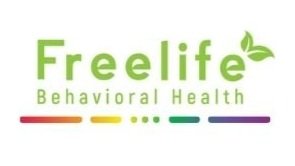Why You’re Feeling the End of Summer Blues—And What to Do About It
The days are a little shorter. The nights are a little cooler. And suddenly, you might feel it—the end of summer blues creeping in.
For some, it’s the dread of going back to work or school. For others, it’s the disappointment of unmet summer hopes—a relationship that didn’t happen, a trip that didn’t work out, or simply not feeling “refreshed enough” to face what’s next. Whatever the reason, the end of summer can stir up a mix of emotions that feel heavier than expected.
You’re not imagining it. The end of summer blues are real, and you’re not alone in feeling them. Let’s explore what this seasonal shift really means, why it happens, and what you can do to move through it with a little more grace.
What does summer blues mean?
“Summer blues” isn’t just about missing the beach. It’s the emotional slump that comes when the season of sun, freedom, and longer days gives way to routine, responsibility, and shorter evenings.
The end of summer blues often feel like:
A low mood or dip in energy
Restlessness or irritability
Nostalgia for what didn’t happen (“I should have done more”)
Worry about the months ahead
In many ways, it’s similar to the “Sunday scaries,” but stretched across a season. It’s your mind and body adjusting to a shift in rhythm—from carefree to structured, from possibility to reality.
How to not be SAD that summer is ending?
If you’re feeling weighed down by the end of summer blues, there are ways to ease the transition. Think of it as giving yourself permission to shift, rather than resisting the change.
Make new rituals for fall — Plan cozy activities that give you something to look forward to, like trying a new recipe, picking up a hobby, or setting a new routine.
Get outside anyway — Even as days get shorter, exposure to natural light helps regulate mood and energy.
Reframe the ending — Instead of “summer’s over,” think of it as “fall is beginning.” New beginnings carry their own opportunities.
Carry the spirit of summer forward — Was it adventure you craved? Connection? Rest? Find small ways to integrate those values into your daily life, no matter the season.
The end of summer blues lose power when you see change not as loss, but as invitation.
Is summertime sadness a real thing?
Yes—summertime sadness is very real. Just like seasonal affective disorder (SAD) in winter, people can feel mood shifts during seasonal transitions. The end of summer blues might not be a clinical diagnosis, but the feelings are valid.
Sometimes, summertime sadness is about:
Losing longer daylight hours, which impacts mood-regulating hormones.
Shifting from freedom (vacation, downtime) to structure (work, school).
Nostalgia—mourning what you hoped summer would be but wasn’t.
While it’s often temporary, summertime sadness can stir up deeper feelings too—like loneliness, grief, or anxiety. Naming it helps. Knowing it’s common makes it less isolating. And addressing it with intentional care can help you move through it more smoothly.
What signifies the end of summer?
For many, it’s not just the calendar date—it’s the little signs. The end of summer blues often show up when we notice:
Back-to-school sales and classrooms reopening
Labor Day weekend marking a seasonal shift
Cooler nights and the first leaves starting to turn
Shorter days when the sun sets earlier than expected
Sometimes, what signifies the end of summer isn’t external at all—it’s internal. It’s the realization that the season didn’t give you what you wanted. That you didn’t find that summer romance, finish that big project, or feel as carefree as you hoped.
Recognizing these moments doesn’t mean you failed—it means you’re human. The end of summer blues often show us what we value most: connection, joy, freedom, or rest. And those things can still be cultivated year-round.
Final thoughts: Carrying summer with you
The end of summer blues can feel like a gray cloud settling in. But endings don’t erase everything you experienced—they carry forward what mattered most.
Maybe you didn’t check off every bucket-list item, but you laughed with friends. Maybe you didn’t find a relationship, but you discovered a new part of yourself. Maybe you didn’t rest as much as you wanted, but you learned what your body needs.
The season shifts, but your capacity for joy, connection, and growth doesn’t disappear.
If you’re struggling with the end of summer blues, remember: it’s not about “getting over it”—it’s about moving with it. Let yourself grieve the ending while opening up to what’s next.
At Freelife, we know transitions can stir up emotions that catch you off guard. We’re here to support you in navigating those shifts with compassion and care—so you don’t just endure change, you grow through it.
Because every season has something to teach us. And this one reminds us: endings are just another word for beginnings.
